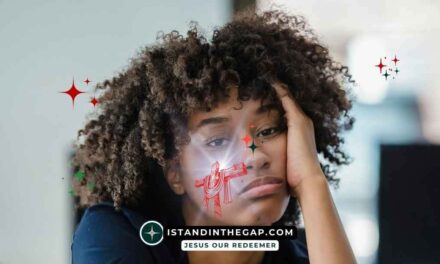Mexico Tattoo Ban: The debate over body art for minors has reached new heights in Mexico, where lawmakers in Nuevo León are pushing forward with controversial legislation that could fundamentally change how young people express themselves.
This proposed law has sparked intense discussions among parents, tattoo artists, and youth advocates about the balance between protecting children and respecting personal freedom.
The initiative comes at a time when body art has become increasingly mainstream among teenagers, raising questions about age-appropriate decision-making and long-term consequences.
As communities across Mexico grapple with evolving cultural norms, Nuevo León’s bold legislative move could set a precedent that ripples far beyond state borders.
Understanding the complexities of this proposed legislation requires examining not just the legal framework, but also the social, cultural, and health considerations that drive such regulatory efforts.
The implications extend far beyond simple rule-making, touching on fundamental questions about parental rights, individual autonomy, and government oversight.
Mexico Tattoo Ban: Key Takeaway
- Nuevo León proposes legislation to prohibit tattoos and body piercings for minors, sparking debate over youth protection versus personal expression rights.
Understanding the Proposed Mexico Tattoo Ban
The legislative initiative in Nuevo León aims to establish comprehensive restrictions on body modification services for individuals under 18 years of age.
This Mexico tattoo ban proposal goes beyond simple age verification, seeking to create enforceable penalties for businesses that provide these services to minors, regardless of parental consent.
State legislators argue that the measure protects young people from making irreversible decisions during their formative years. The proposal specifically targets commercial tattoo parlors and piercing establishments, with potential fines and licensing consequences for violations.
However, the legislation faces significant opposition from business owners who argue it infringes on legitimate commerce and parental decision-making authority.
Key Provisions of the Proposed Legislation
The draft law includes several specific measures designed to regulate the body art industry. Establishments would face mandatory age verification requirements, with photographic identification becoming standard practice.
The legislation also proposes waiting periods for certain types of body modifications, even with parental consent.
Penalties for violations could include temporary business closures, substantial fines, and potential license revocations for repeat offenders.
The proposal also includes provisions for public awareness campaigns about the risks associated with permanent body modifications for developing individuals.
Cultural Context Behind the Mexico Tattoo Ban Initiative
Mexico’s relationship with body art reflects a complex blend of indigenous traditions and modern cultural influences.
While traditional body modification has historical significance in various Mexican communities, contemporary tattoo culture often draws from international trends that may not align with local values.
Religious and conservative groups have largely supported the initiative, viewing it as protection for traditional family values and child welfare.
These community organizations argue that permanent body modifications can limit future opportunities and may conflict with deeply held cultural beliefs about bodily integrity.
Youth Perspectives on Body Art Restrictions
Young people in Nuevo León have expressed mixed reactions to the proposed Mexico tattoo ban. While some understand the protective intent behind the legislation, others view it as an unnecessary restriction on personal expression and individual rights.
Teen advocacy groups have organized peaceful demonstrations, arguing that education and parental involvement represent better approaches than outright prohibition.
They emphasize that body art often serves as an important form of self-expression during the challenging teenage years, helping young people establish their identities within diverse communities.
Medical and Safety Considerations
Healthcare professionals have provided varied input on the proposed legislation, with many supporting age restrictions based on medical evidence about adolescent brain development.
Medical research indicates that decision-making capabilities continue developing well into the early twenties, potentially affecting young people’s ability to fully consider long-term consequences.
Infection risks and healing complications also factor into the medical community’s stance on the Mexico tattoo ban. Younger individuals may be more susceptible to certain complications, and their lifestyle factors could interfere with proper healing processes.
Industry Safety Standards
Professional tattoo and piercing establishments have emphasized their commitment to safety and responsible practices, regardless of age restrictions.
Many shops already implement strict hygiene protocols and provide comprehensive aftercare guidance to all clients.
Industry representatives argue that proper regulation and education serve clients better than blanket prohibitions. They advocate for enhanced licensing requirements and mandatory safety training rather than complete age-based restrictions.
Implications
The proposed Mexico tattoo ban could have far-reaching consequences extending well beyond Nuevo León’s borders. If enacted, this legislation might inspire similar measures in other Mexican states and potentially influence policy discussions across Latin America.
Potential Benefits:
The legislation could reduce instances of regrettable permanent body modifications among young people, decrease infection risks associated with unlicensed providers, and provide parents with legal backing for their concerns about their children’s choices.
Additionally, it might reduce peer pressure among teenagers to obtain body art and create clearer professional standards within the industry.
Potential Drawbacks:
Critics worry the ban could drive the practice underground, potentially increasing health risks through unregulated providers. The legislation might also infringe on cultural traditions that include coming-of-age body modifications and limit legitimate forms of artistic expression.
Some argue it represents government overreach into personal and family decision-making, while others worry about enforcement challenges and potential discrimination issues.
Economic implications include potential revenue losses for legitimate businesses and possible job displacement within the body art industry.
The broader social impact might affect how communities view youth autonomy and could influence other areas of age-based regulation beyond body art.
Conclusion
The Mexico tattoo ban proposal in Nuevo León represents a significant moment in the ongoing conversation about youth protection, personal expression, and government regulation.
While the intentions behind the legislation stem from genuine concerns about young people’s welfare, the implementation challenges and cultural implications require careful consideration.
As lawmakers continue deliberating this complex issue, finding balance between protecting minors and respecting individual rights remains paramount.
The ultimate decision will likely influence similar debates across Mexico and serve as a case study for other regions grappling with comparable challenges in our rapidly evolving cultural landscape.
Frequently Asked Questions
What exactly would the Mexico tattoo ban prohibit?
- The proposed legislation would prohibit tattoo parlors and piercing establishments from providing services to anyone under 18 years old, regardless of parental consent, with penalties including fines and potential license revocation.
Are there any exceptions to the proposed ban?
- The current proposal does not include specific exceptions, though lawmakers continue discussing potential modifications for cultural or medical reasons during the legislative process.
How would the ban be enforced?
- Enforcement would primarily involve business inspections, mandatory age verification requirements, and penalties for establishments that violate the restrictions, including fines and possible closure.
What do parents think about this legislation?
- Parental opinions are divided, with some supporting the protective measures while others prefer maintaining their right to make these decisions for their children with proper guidance.
Could this law spread to other Mexican states?
- If successful in Nuevo León, similar legislation could be proposed in other Mexican states, though each region would need to develop its own specific legal framework and enforcement mechanisms.
About Nuevo León State Government
The Nuevo León State Government serves as the administrative authority for one of Mexico’s most economically significant northern states. Known for its progressive industrial policies and business-friendly environment, the state government has increasingly focused on social legislation affecting families and youth welfare.
Located adjacent to the Texas border, Nuevo León often serves as a testing ground for policies that balance traditional Mexican values with modern social challenges, making it a crucial player in shaping regional governance approaches across northern Mexico.
Biography of State Legislators
The legislative initiative has been championed by a coalition of Nuevo León state representatives who specialize in family welfare and youth protection issues.
These lawmakers have backgrounds in education, social work, and public health, bringing diverse perspectives to the complex challenge of regulating body art for minors.
Their collaborative approach reflects the state’s commitment to evidence-based policy making while considering cultural sensitivities and constitutional rights in their legislative efforts.
Original article source: Christian Daily

















